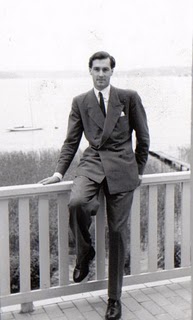This article needs additional citations for verification .(March 2015) |
| The Edelstam Prize | |
|---|---|
| Awarded for | Outstanding contributions in Human Rights |
| Country | Sweden |
| Presented by | Harald Edelstam Foundation |
| First award | 2011 |
| Website | haraldedelstam |


The Edelstam Prize, named after Harald Edelstam, is awarded annually by the Harald Edelstam Foundation. The Edelstam Prize is awarded to a person who has shown outstanding contributions and courage in defense of Human Rights. The Edelstam Prize is named for the Swedish diplomat and ambassador Harald Edelstam (1913-1989). Harald Edelstam distinguished himself as diplomat by his professional competence, his bravery and his civic courage in the fight for Human Rights. He was an early proponent and symbol of what is today known as "Responsibility to Protect", and his memorable acts contributed to saving more than a thousand lives.
Contents
The winner of the Edelstam Prize can be someone from the private sector or a public servant. The winner embodies Ambassador Harald Edelstam's spirit in a country/countries where Human Rights, according to international law, have been violated.
The laureate demonstrates an ability to analyze and handle complex situations and to defend Human Rights. The candidate has, presumably in a complex situation, been able to take a decisive role in helping threatened people or directly saving human lives. Civic courage is a central parameter in the selection of the successful candidate.